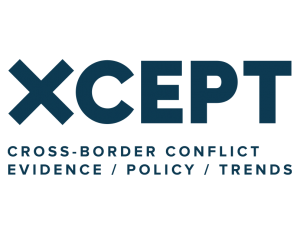XCEPT Briefing Note – Men and Psychosocial Support Services Programming
Dr Heidi Riley
This Briefing Note explores humanitarian responses to conflict-related trauma amongst men and boys, and finds that addressing male trauma supports individual and community well-being, as well as helping to prevent further violence.
Key Findings:
- Psychosocial support for men and boys is deprioritised in social services.
- Funding for programmes aimed at men and boys is difficult to secure and currently runs the risk of redirecting funds away from much-needed services for women and girls.
- There is a clear need to increase the visibility of male trauma and its implications through policymaking and research.
- Innovative programming allows for mainstreaming of PSS interventions into broader livelihood programmes and context-specific services.
- Participants report a reduction in community and domestic violence.
- Applying a masculinity lens to PSS delivery is critical to uptake and impact.
- Using mental health terminology risks deterring participation. Instead, labelling sessions with more neutral terminology, such as ‘group workshop’ or ‘training session’, can help avoid stigma.
- Group workshops are important to avoid stigma and create a space for men to share narratives and ‘vent’. However, for LGBT men or men who have suffered sexual violence, individual counselling may be more appropriate.
- Organisations noted the importance of male facilitators in all-male group workshops.
- Appropriate scheduling is crucial in a context where men are seen as the main breadwinners and have employment commitments.
- Engaging with moral injury-induced trauma can be beneficial in certain circumstances.
- Local legitimacy in programme design is vital to ensure effective engagement.
The full Briefing Note can be accessed here.

Credit: Shutterstock/AT Production.

This publication was produced as part of the XCEPT programme, a programme funded by UK International Development from the UK government. The views expressed do not necessarily reflect the UK government’s official policies.

